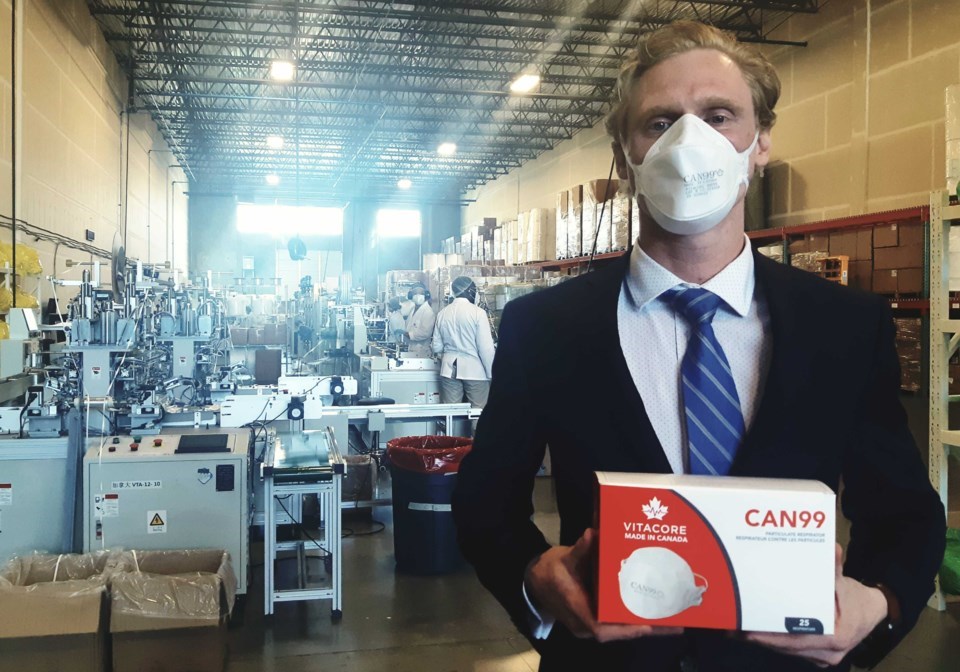Printed 3D modular homes in Rossland.
Recycled face masks in Burnaby and the Tri-Cities.
And the first 100 per cent recycled bathtub in Kelowna.
On Friday, the B.C. government said it would up its investment in more than a dozen companies looking to recycle and reduce plastic waste across the province.
Inside a new Port Coquitlam facility designed to recycle face masks, politicians gathered to announce more than $8 million in funding to back 14 companies looking to recycle everything from large industrial plastic pipes to child-proof bottle caps for liquor bottles.
“In the Interior of British Columbia, we've seen a company that is taking hard-to-recycle used car batteries [and] recycling the specialty plastic into cases for new batteries,” said B.C. Environment Minister George Heyman Friday.
“We know that we need to get away from waste and move towards more circularity, whether it's to control greenhouse gas emissions, to avoid wastes, to protect our environment, and to deal with some of the real specialty items that we know would be a problem but are necessary to use.”
The money is part of a second round of funding under the CleanBC Plastics Action Fund, started in 2020 in response to the pandemic. It's meant to reduce plastic waste and increase the use of recycled plastic in manufactured products.
Heyman said the province is currently working on legislation to control, limit and in some cases, ban single-use plastic waste.
“We're in the midst of discussing expansion of those programs to include electric vehicle batteries, mattresses, medical sharps, and many more items,” he said.
“We know that hard-to-recycle items don't belong in our economy when there are alternatives.”
The provincial announcement comes as Metro Â鶹´«Ã½Ó³»looks to reset its targets to reduce waste among its 2.8 million residents — together accounting for nearly half of B.C.’s population.
Since 2010, the amount of waste generated per person in Metro Â鶹´«Ã½Ó³»declined by 11 per cent, exceeding the regional body’s 10 per cent target. By 2021, 65 per cent of Metro Vancouver’s waste was recycled, compared to a 26.5 per cent average for Canada.
“Even so, Metro Â鶹´«Ã½Ó³»residents and businesses dispose of close to 1.25 million tonnes of garbage every year, an indication there is much work to be done,” wrote staff in a recent report.
“This means advocating for better product and packaging design as well as more selective purchasing by consumers and businesses.”
Metro Â鶹´«Ã½Ó³»is currently in the process of updating its solid waste management plan. Some of the plans the region has to increase waste prevention include:
- a regional food recovery network to “rescue and redistribute surplus food” to people and animals;
- rolling out urban “ReUse Days” at recycling and waste centres, where people can pick up old items instead of disposing of them;
- and expanding reusable container programs.



